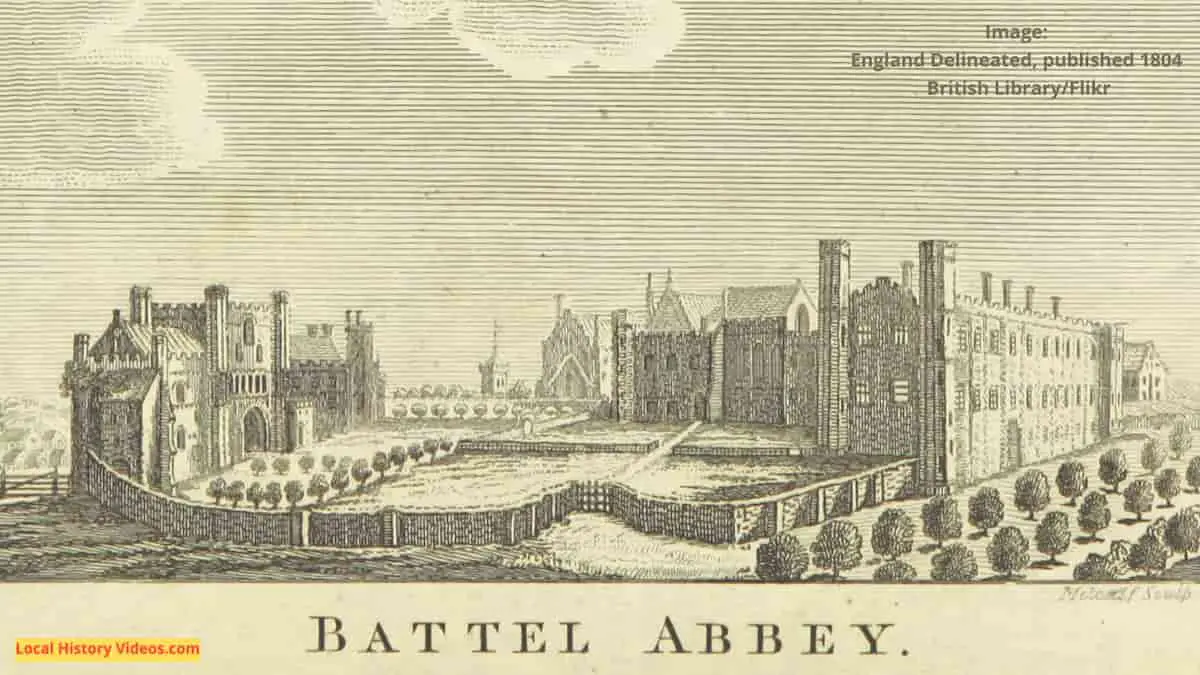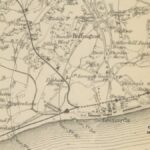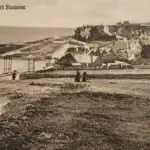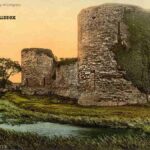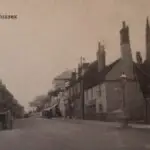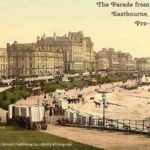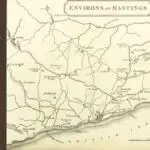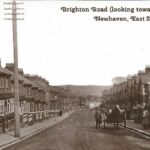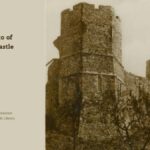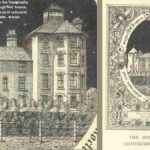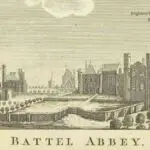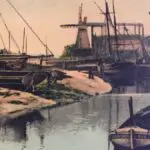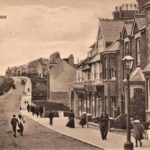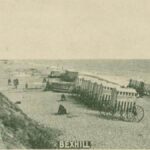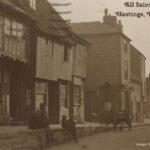Glimpse history through old images of Battle, East Sussex, England.
Old Guide
A book published in 1827 shows a simple map of the Hastings area, which includes Battle in the top left hand side.
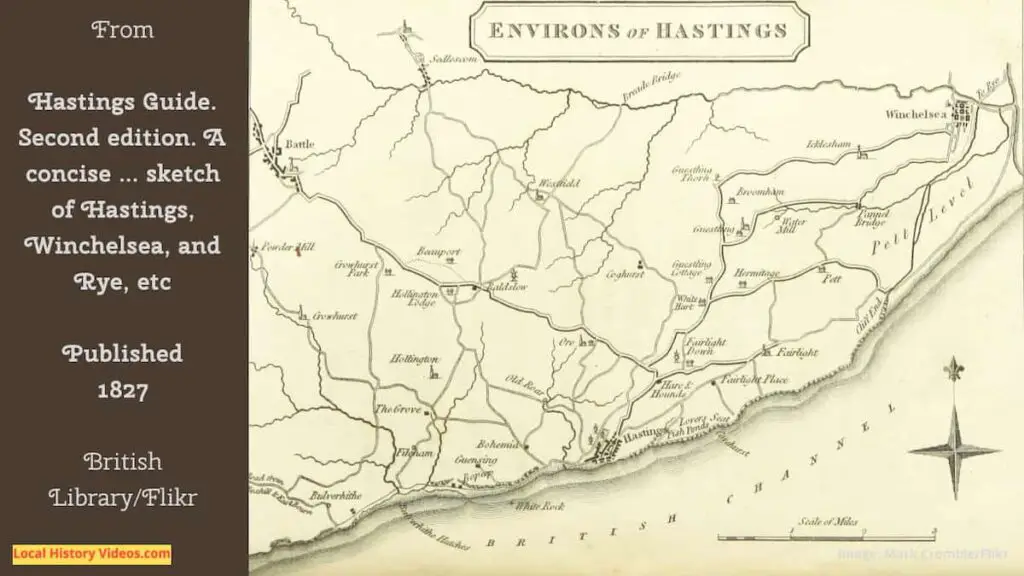
And a closeup from the same 1827 map:
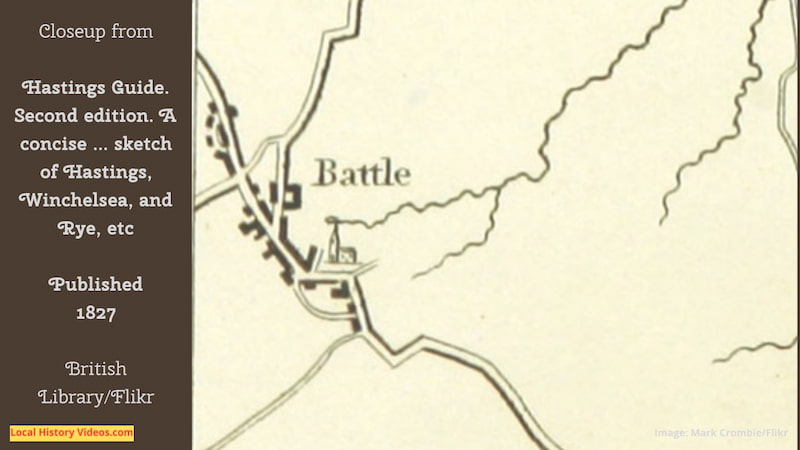
Battle in 1935
1066 – Where The Famous Battle Was Really Fought (1935) – British Pathé on YouTube
A Bit of Battle History
Extract from: A Journey Round the Coast of Kent, Containing Remarks on the Principal Objects Worthy of Notice Throughout the Whole of that Interesting Border, and the Contiguous District; Including Penhurst, and Tunbridge-Wells; with Rye, Winchelsea, Hastings, and Battle, in Sussex: Being Original Notes Made During a Summer Excursion …, by L. Fussell
Published in 1818
Pages 265-266
BATTLE
acquired its present appellation from the conflict
which took place on the 14th of October , 1066 , the
birth – day of Harold , a circumstance which had given
great but delusive confidence , to that monarch , who
thought it ominous of success .
The town had been
previously called Epiton , and the plain adjoining to
it , Headfield or Heathfield .
The Conqueror erected ,
on the spot where the victory was gained , an abbey ,
which from the remains of it , now the seat of Sir
Godfrey Webster , Bart . appears to have been very
magnificent .
The original foundation was endowed
with many valuable privileges ( especially that of
sanctuary ) and lands to a great amount ; and its
abbot had the honour of the mitre , and a seat in the
supreme legislature of the kingdom .
It is a re
markable circumstance , that at Battle , the weekly
market continued to be held on Sunday , until the
year 1600 ; but whether that practice had any
reference to William’s victory , or was to distinguish
the paramount and exclusive jurisdiction of the
ecclesiastical establishment , to which the town had
been rendered subservient , may be doubted .
An embattled gateway , at the entrance of the
abbey , remains entire , with its towers , corbels , battle
ments , and portcullis ; and standing at the end of
the principal street of the town has a formidable
and sullen grandeur of appearance , which the early
Norman architecture is so peculiarly calculated to
maintain .
The building is spacious , part of it only
belonging to the mansion – house ; and the gateway
before – mentioned appropriated to the use of the
magistracy ; but the whole fabric covers a great
extent of ground , being nearly a mile in circum
ference , and the outer wall of great height and
strength .
It is remarkable that , in the vicinity of this place
may be traced , in the names of many of the inhabit
ants , strong proofs of their descent from the Saxons ,
and amongst them those of Harold and Harod , both ,
it is presumed , scions of the race of the vanquished
monarch ; thus , one while , elevated to the highest
honours , and in turn melted down into the common
mass of undistinguished plebeians .
Dominion and
command are gone ; but the same royal and noble
blood still warms the heart , inspires with the ardour
of patriotism , and prompts to heroic deeds .
More about East Sussex
- Old Images of Wannock, East Sussex
- Old Images of St Leonards-on-Sea, East Sussex
- Old Images of Crowhurst, East Sussex
- Old Images of Rottingdean, East Sussex
- Old Images of Pevensey, East Sussex
- Old Images of Hailsham, East Sussex
- Old Images of East Sussex, England
- Old Images of Winchelsea, East Sussex
- Old Images of Newhaven, East Sussex
- Old Images of Lewes, East Sussex
- Old Images of Crowborough, East Sussex
- Old Images of Battle, East Sussex
- Old Images of the Pestalozzi Children’s Village, Sedlescomb
- Old Images of Rye, East Sussex
- Old Images of Seaford, East Sussex
- Old Images of Sidley Green, East Sussex
- Old Images of Bexhill-on-Sea, East Sussex
- Old Images of Hastings, East Sussex
- Old Images of Eastbourne, East Sussex
- Old Images of Brighton And Hove

